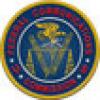FCC Approves SpaceX, Kepler, Telesat, LeoSat Satellite Requests
The Federal Communications Commission approved the requests of four companies—Space Exploration Holdings, LLC (SpaceX), Kepler Communications, Inc. (Kepler), Telesat Canada (Telesat), and LeoSat MA, Inc. (LeoSat)— seeking to roll-out new and expanded services using proposed non-geostationary satellite orbit (NGSO) satellites. These proposed satellite systems are expected to enable fixed-satellite service in the United States. The FCC approved:








